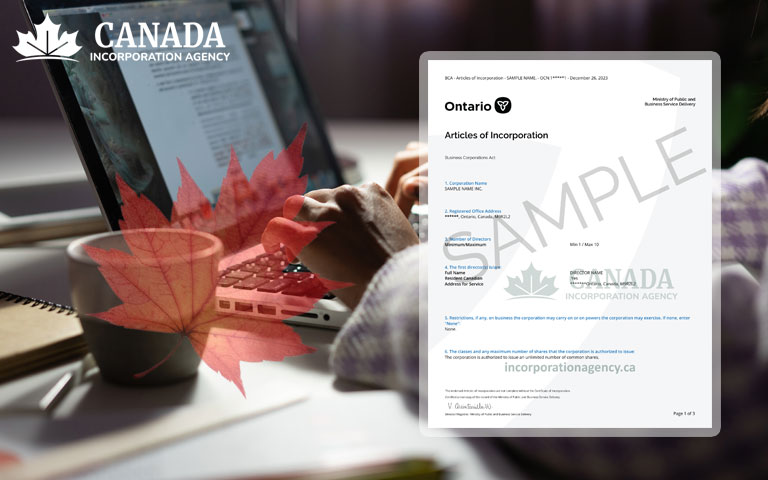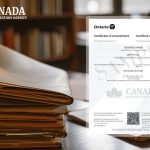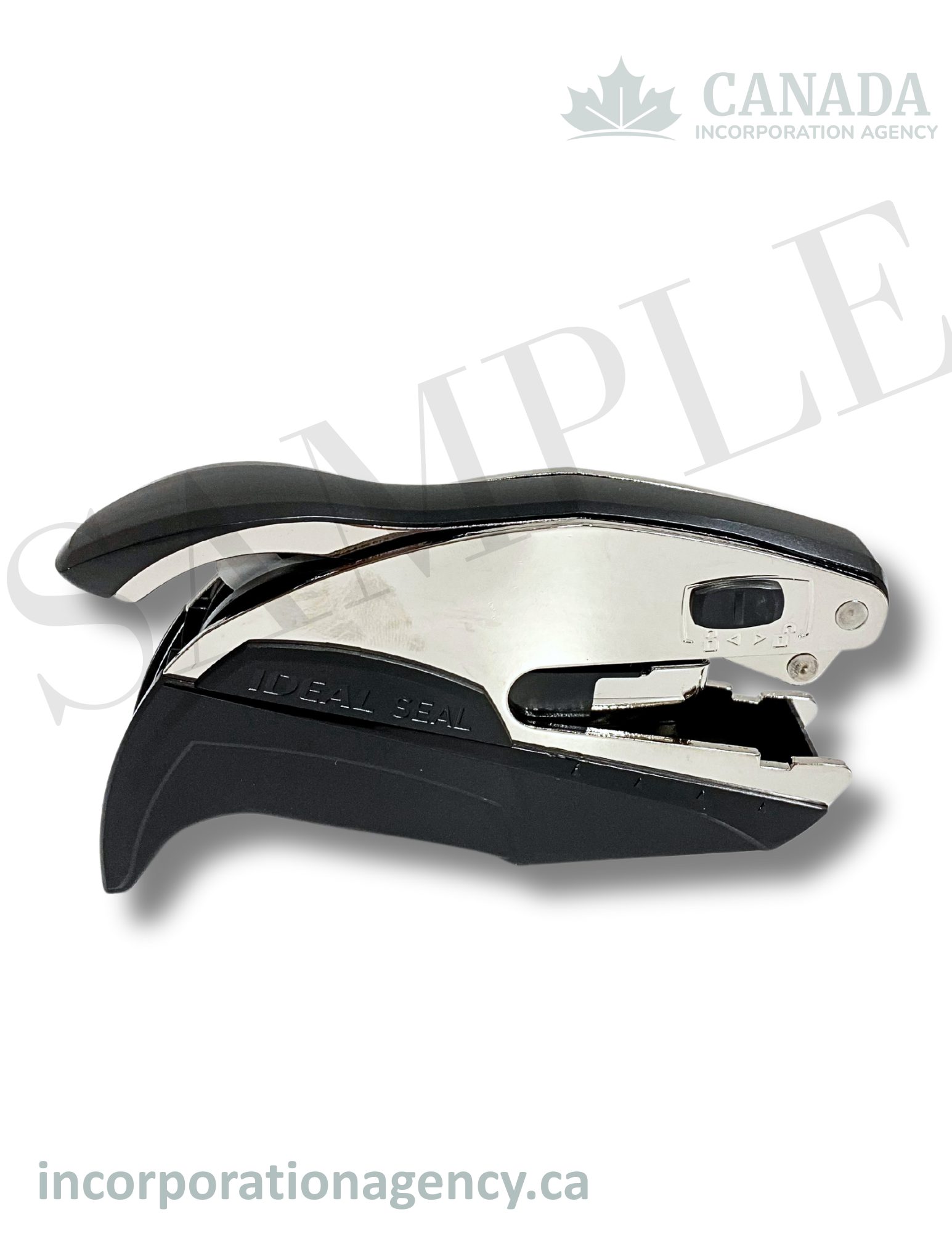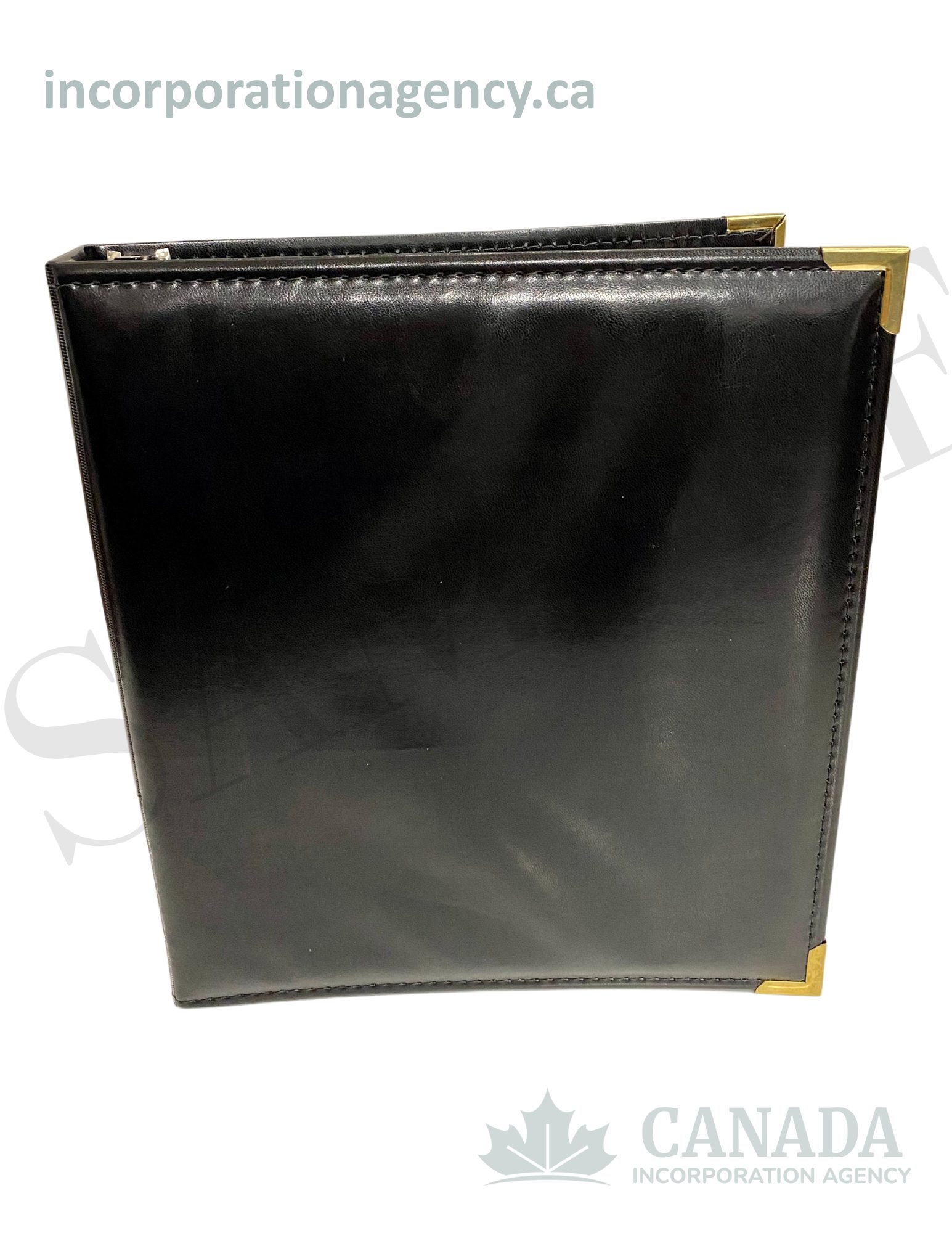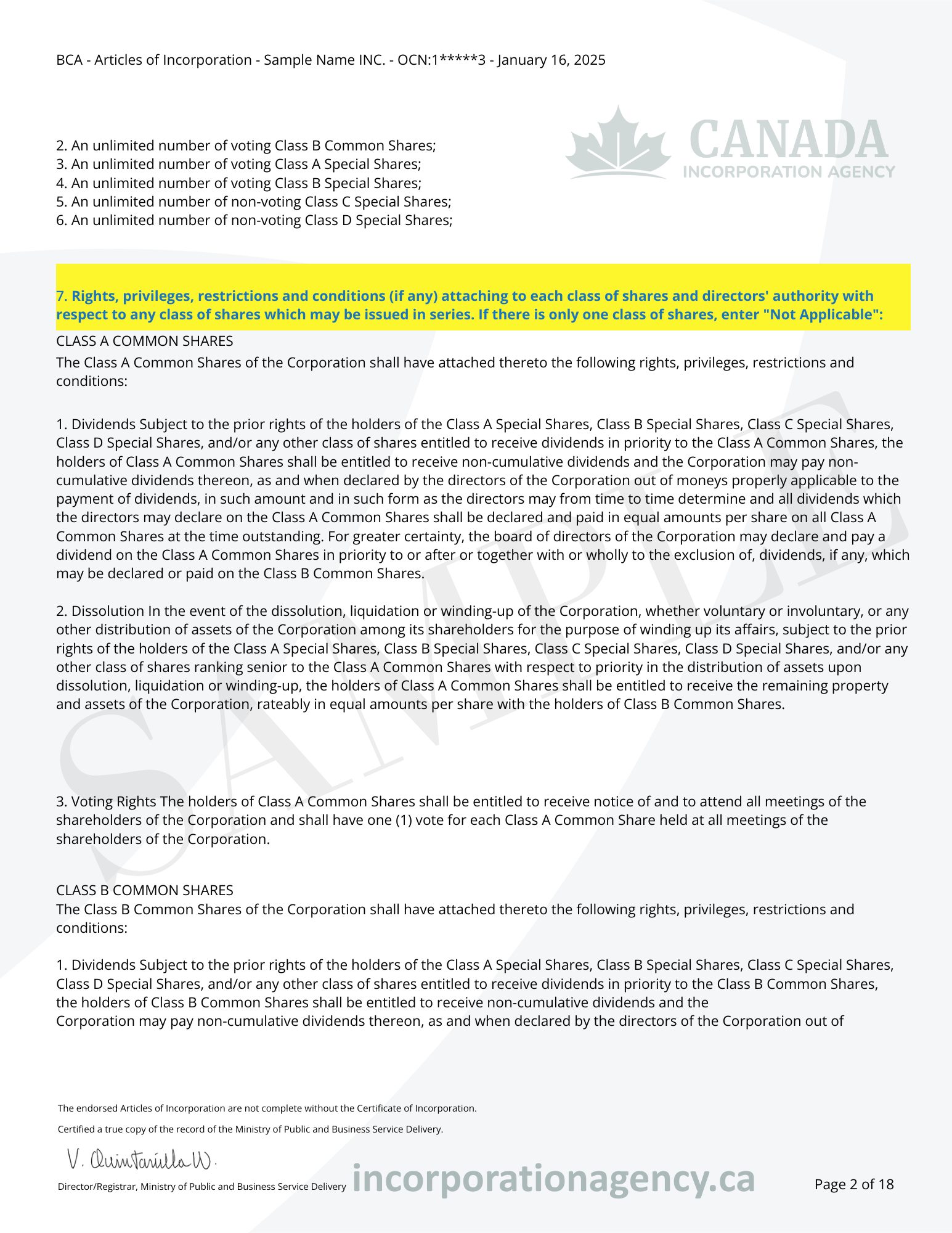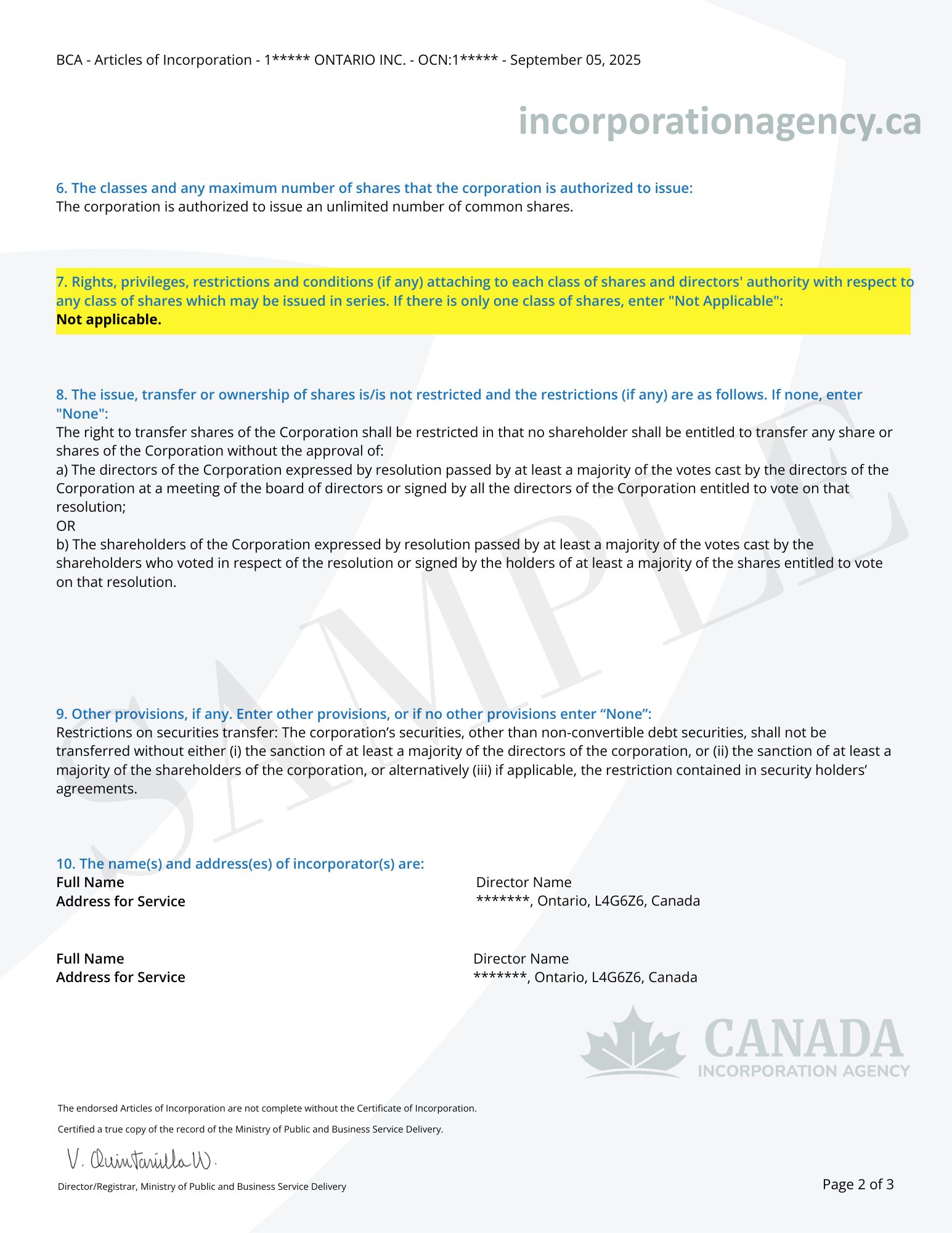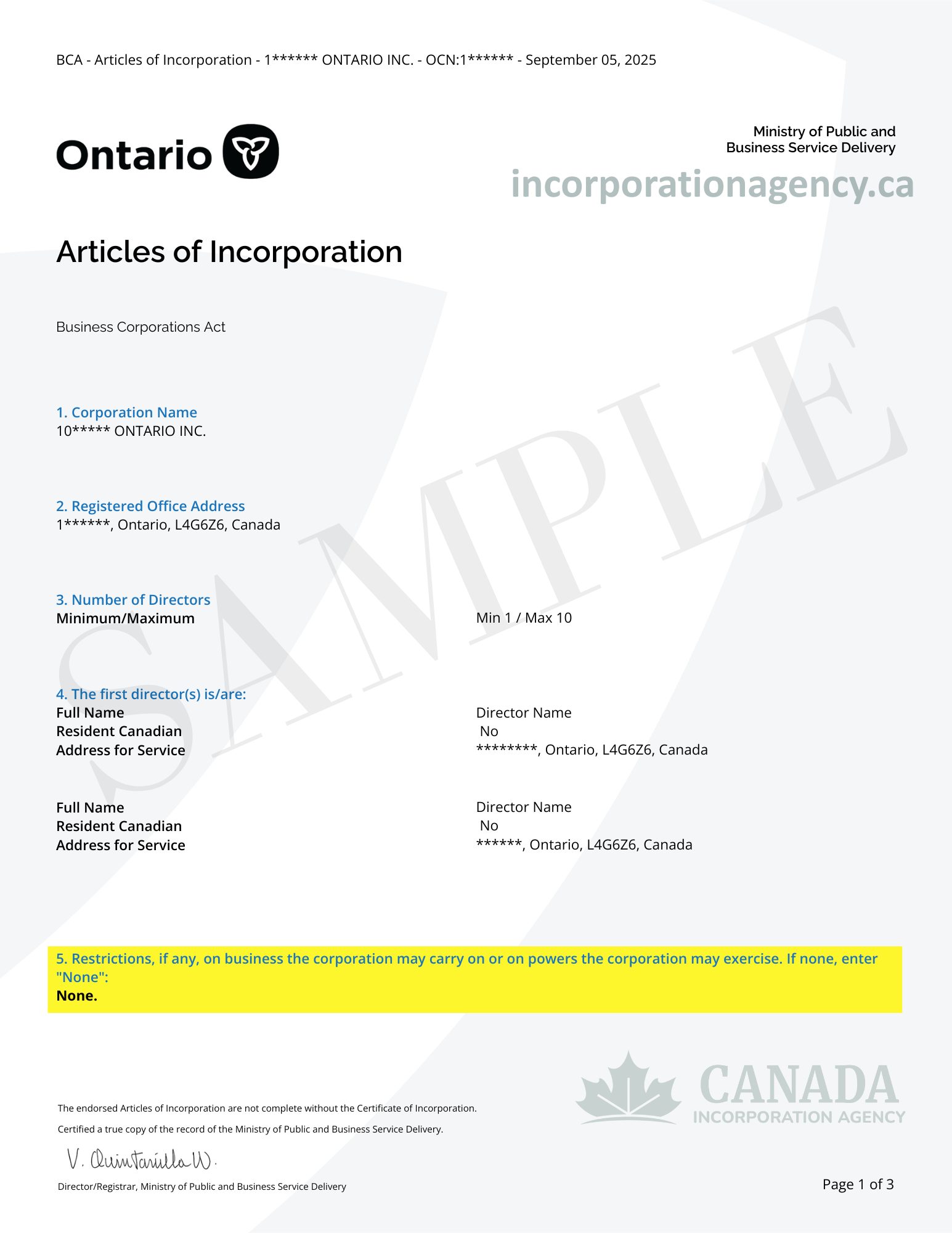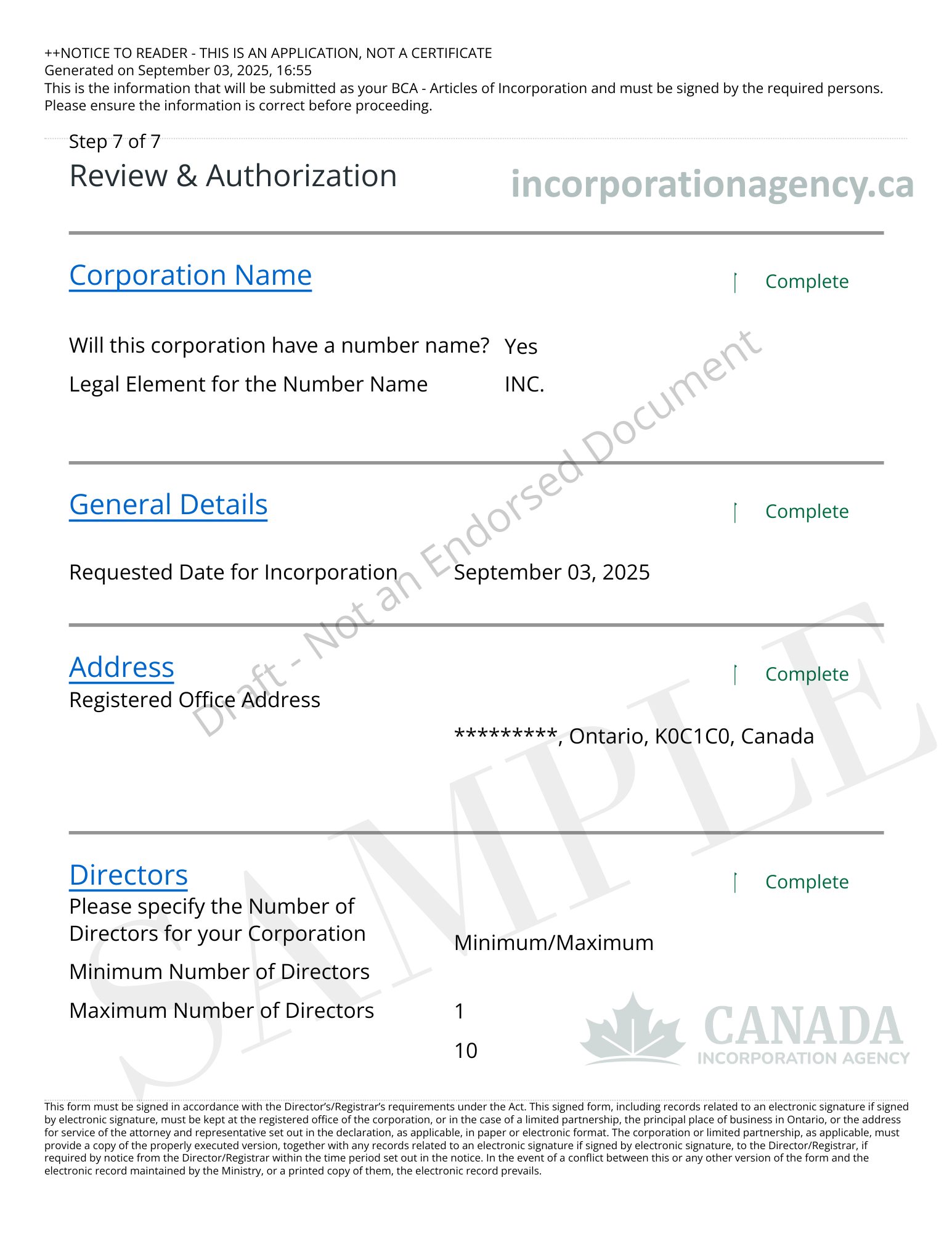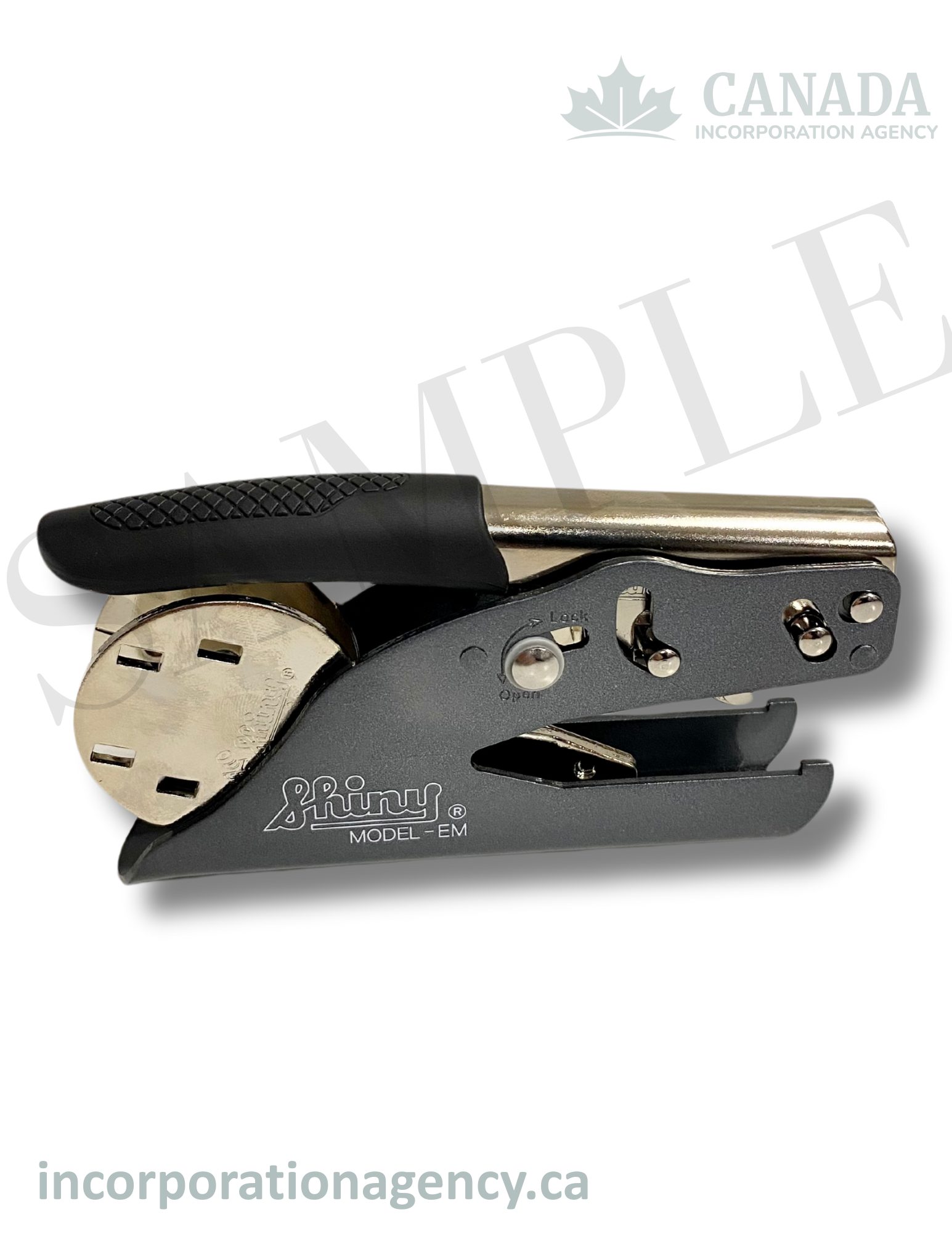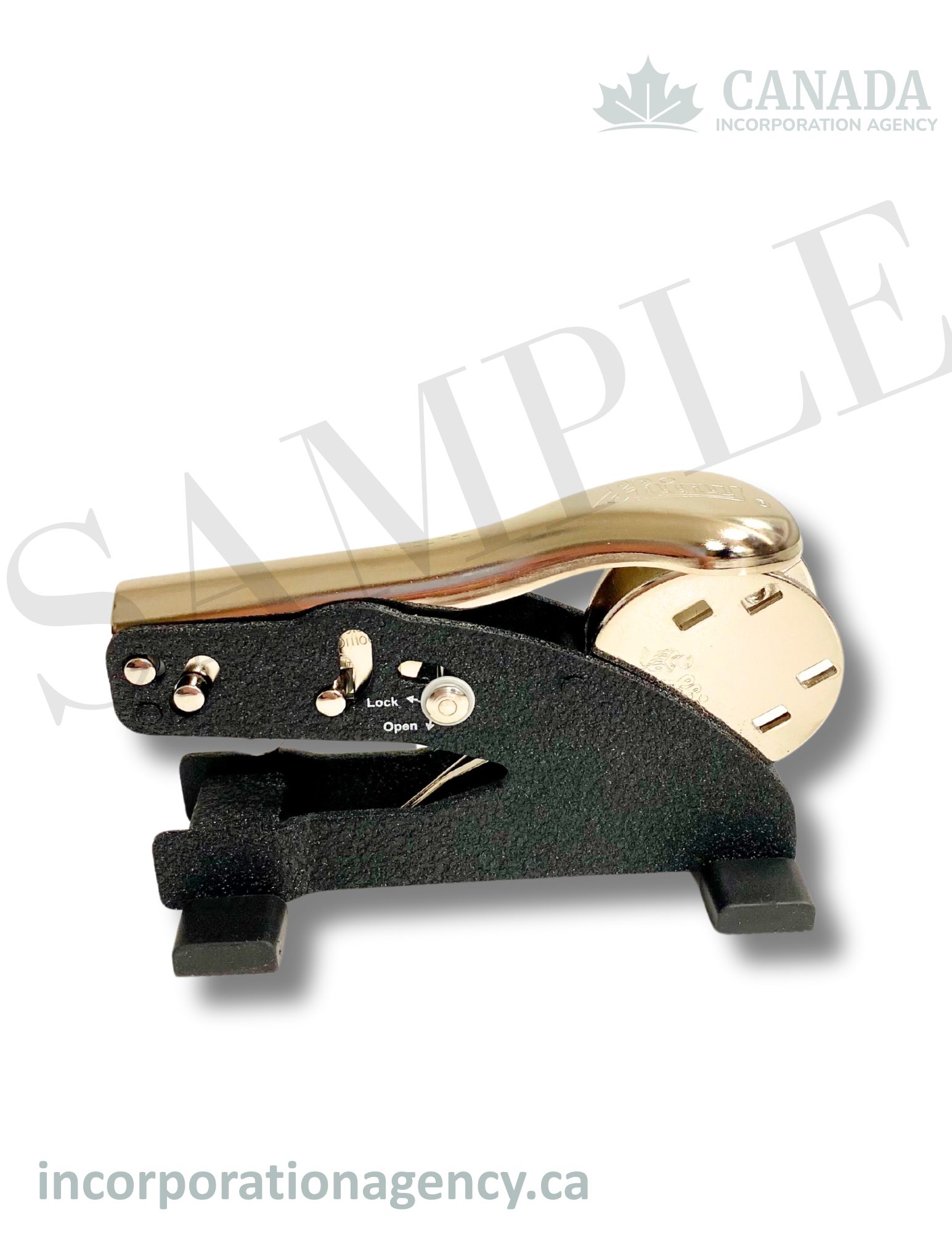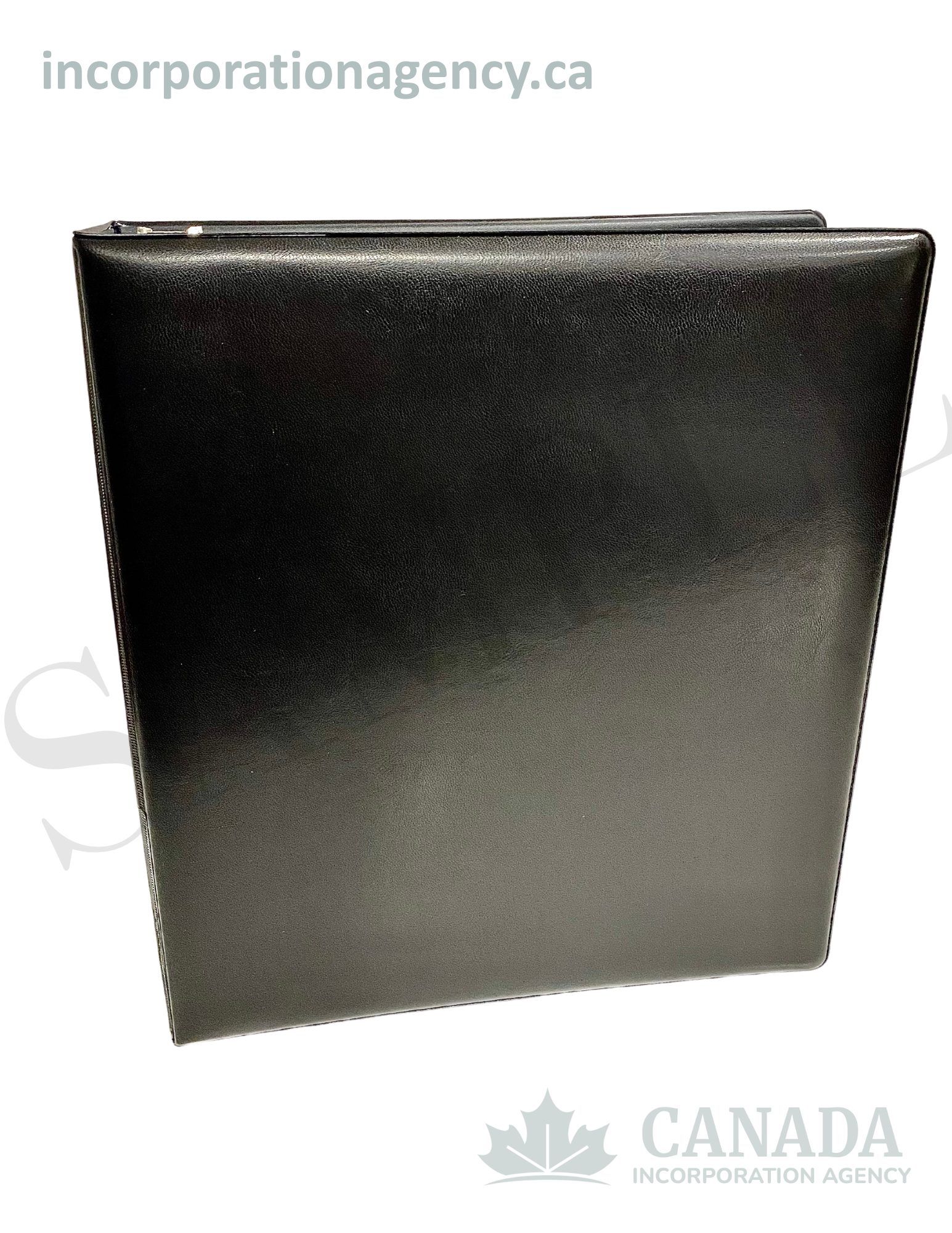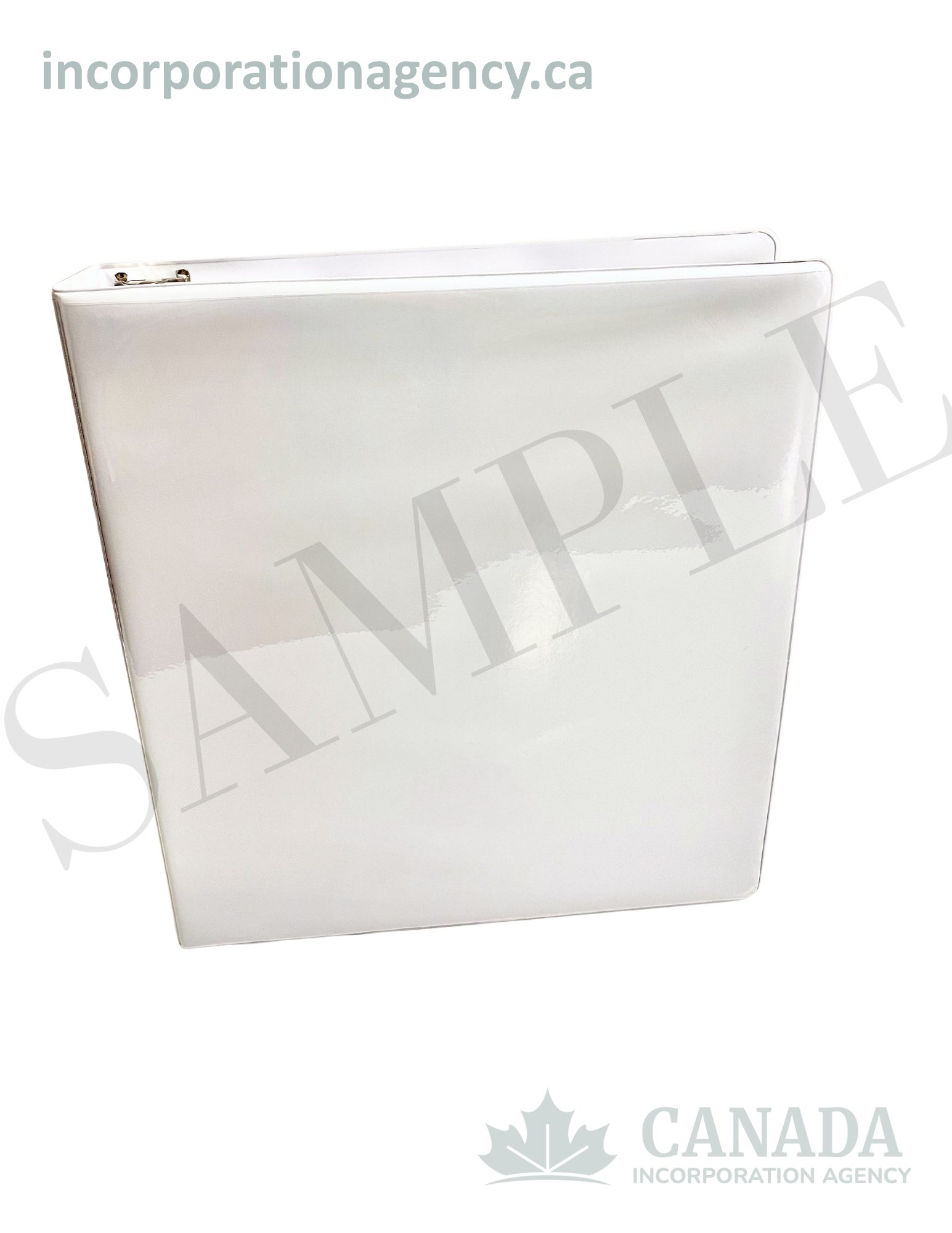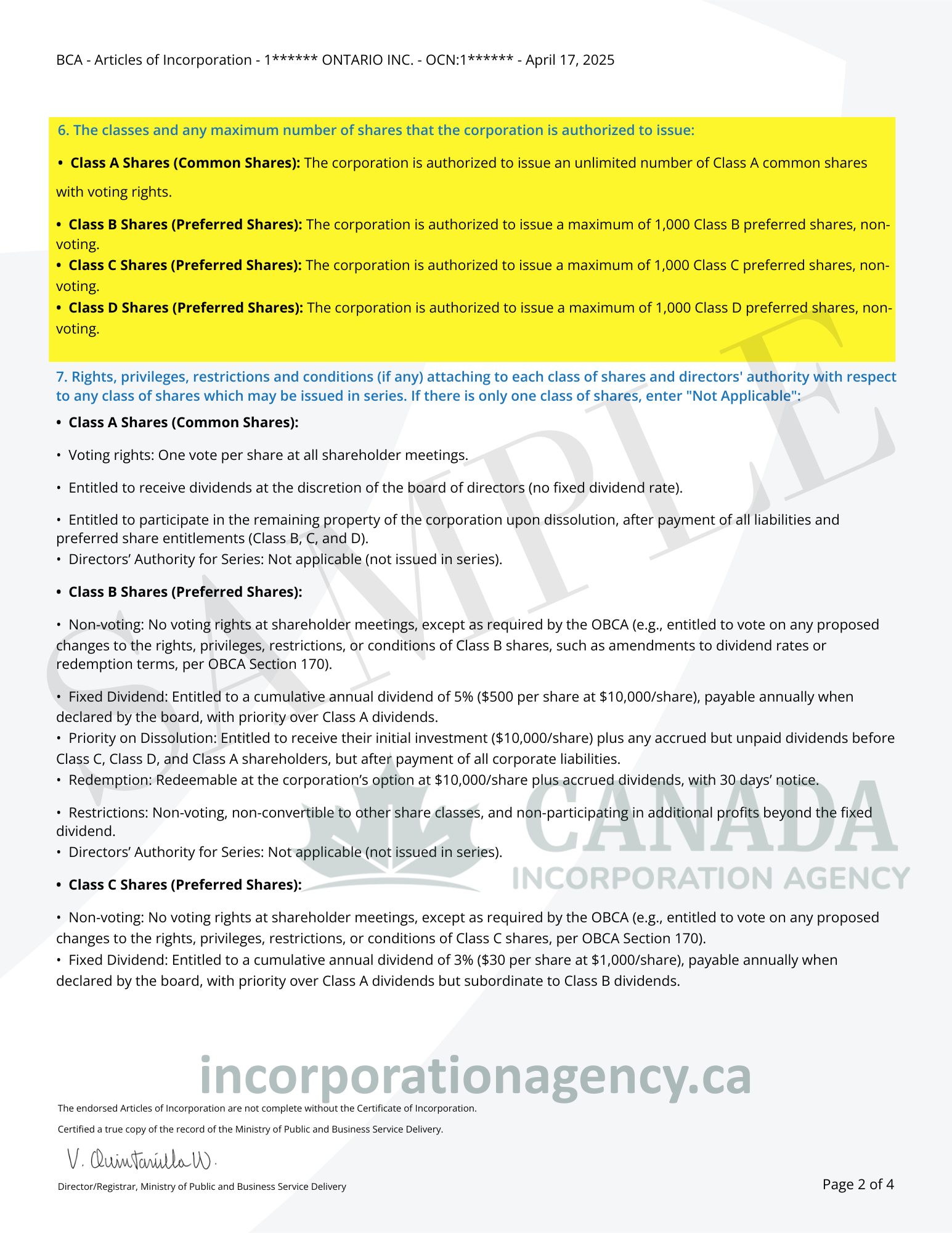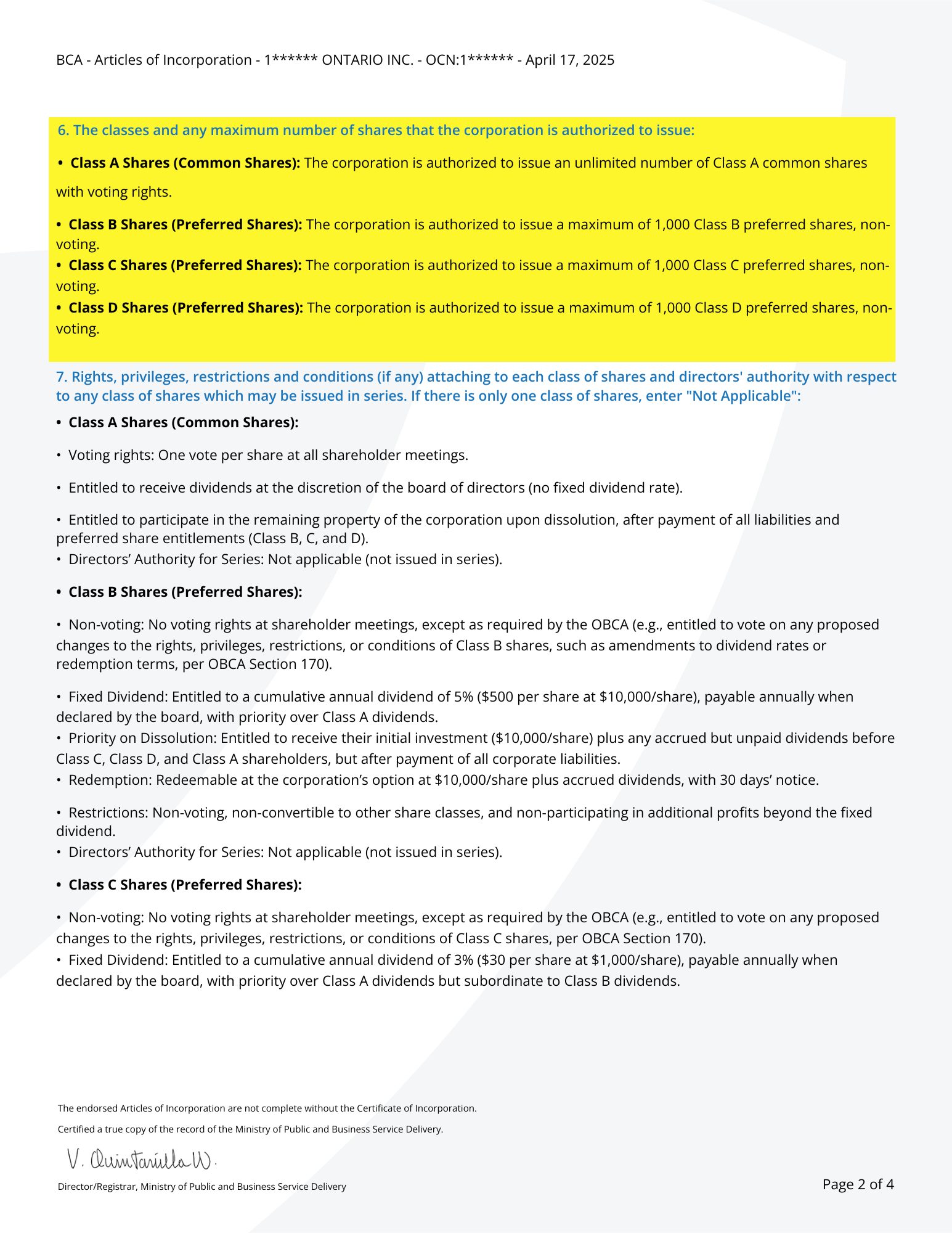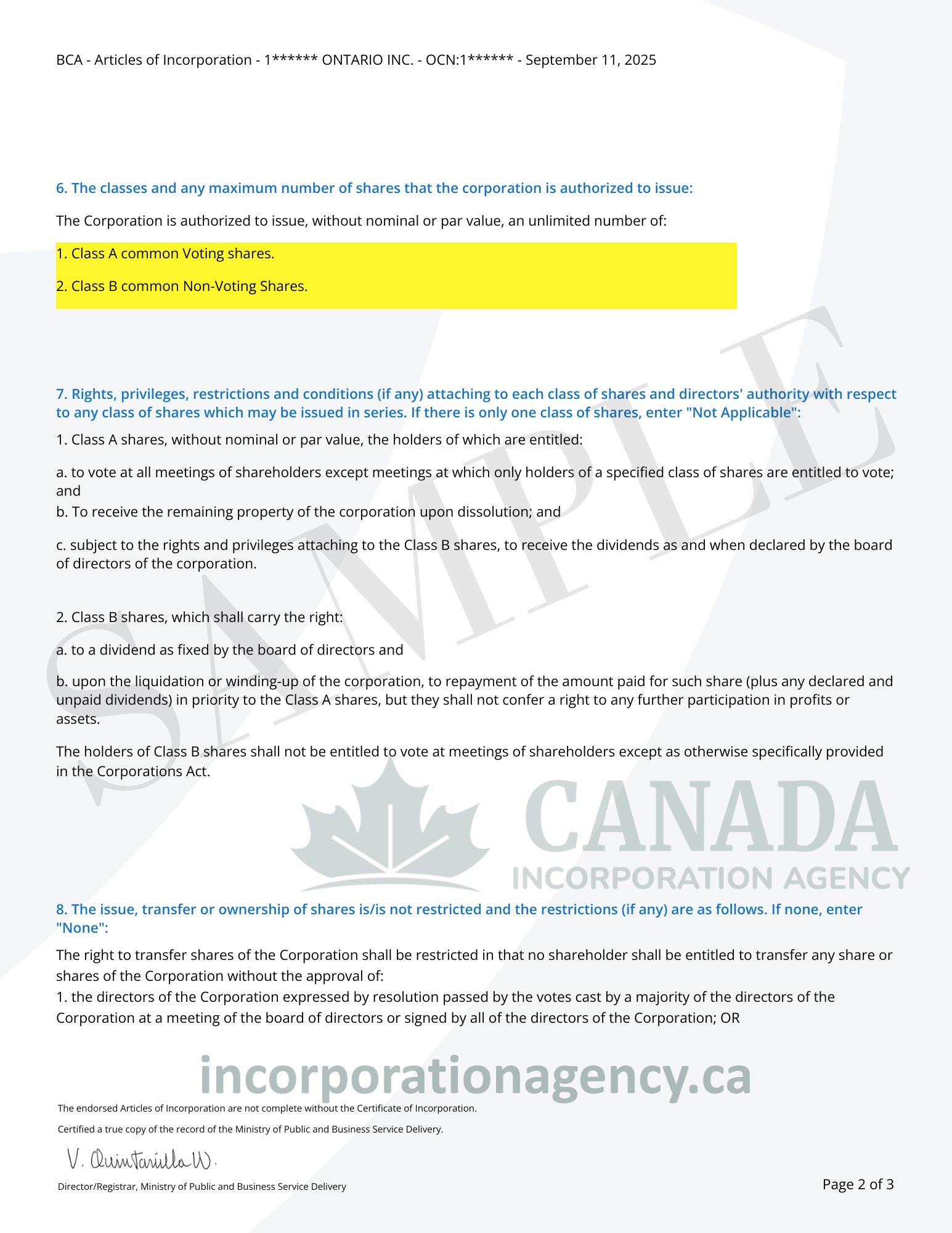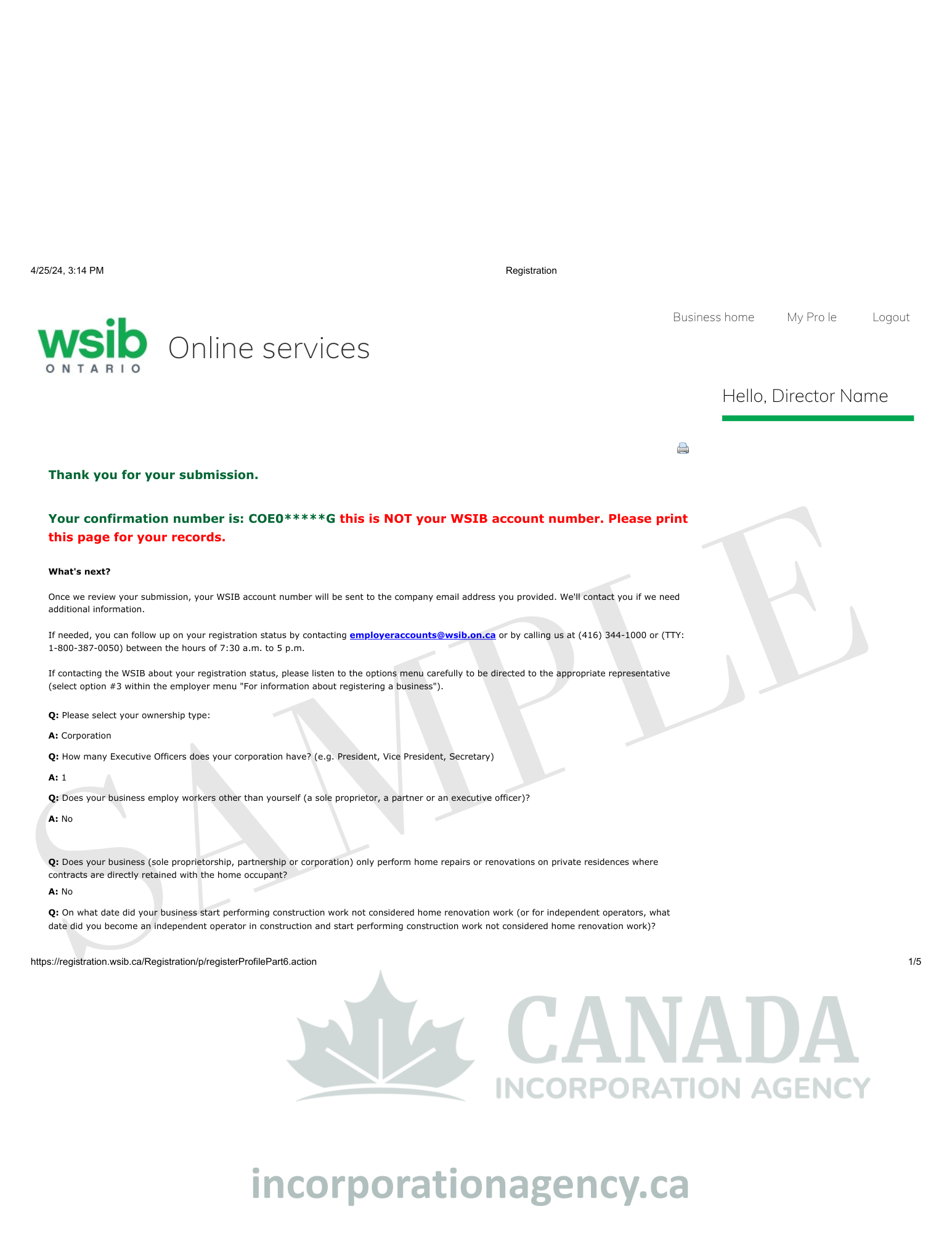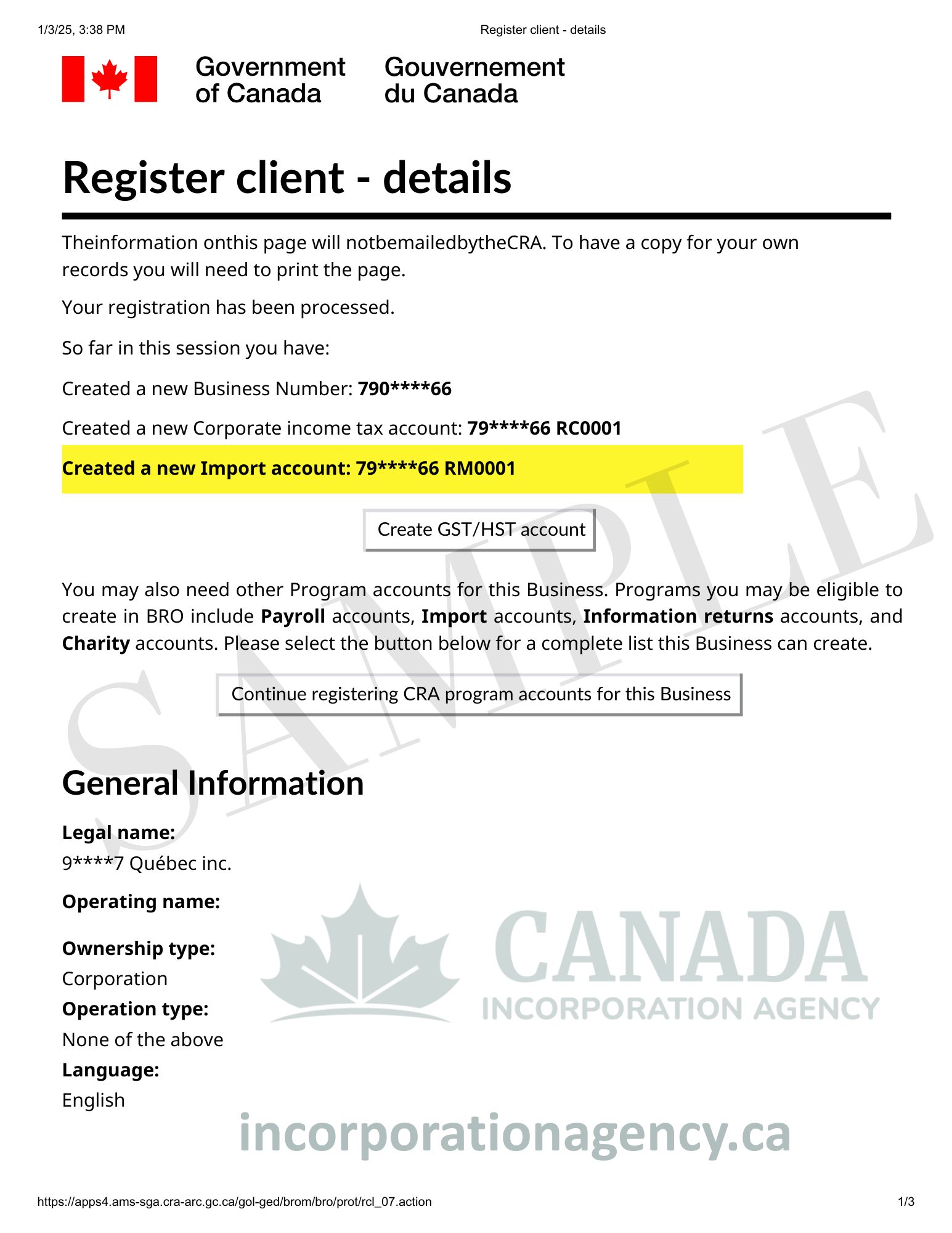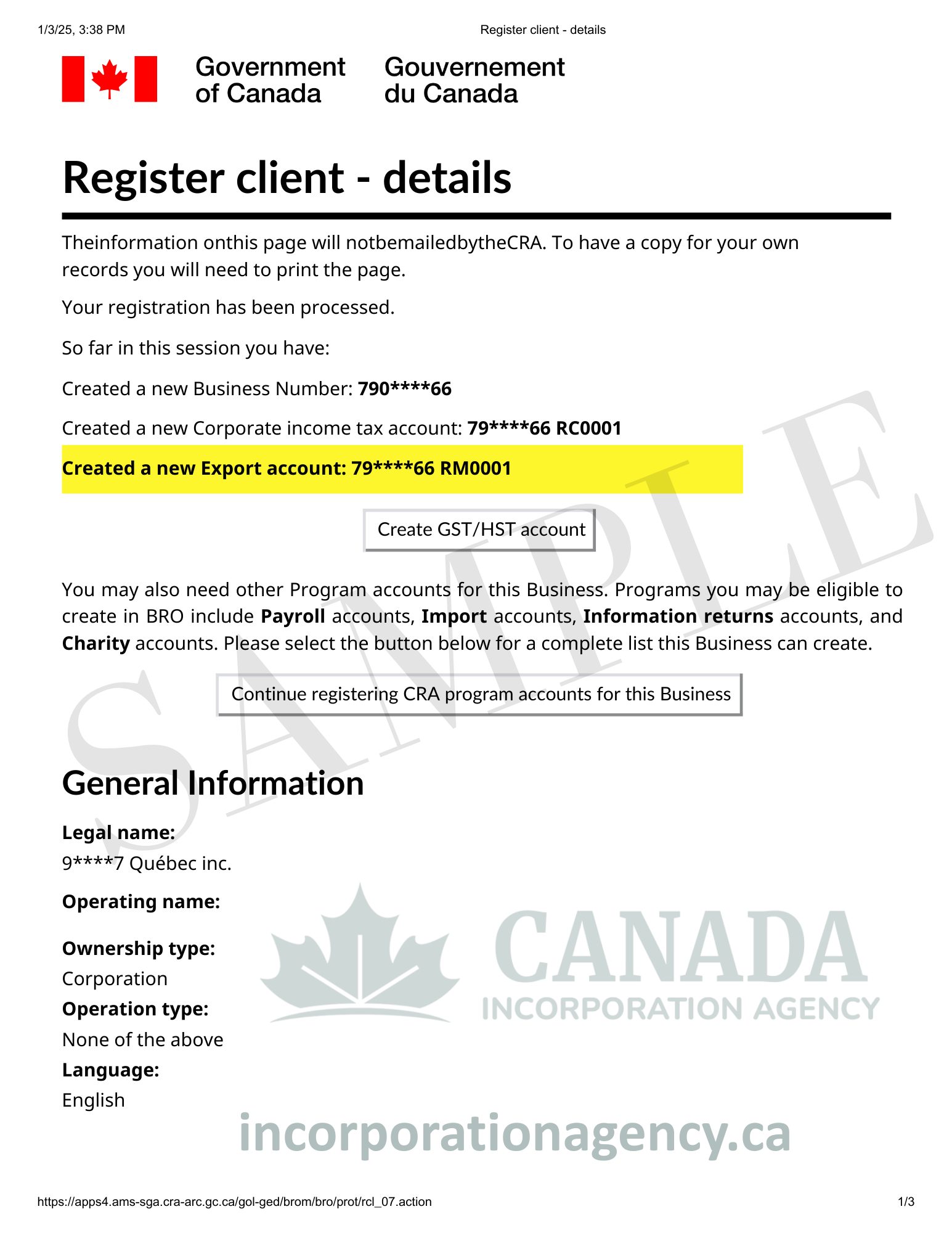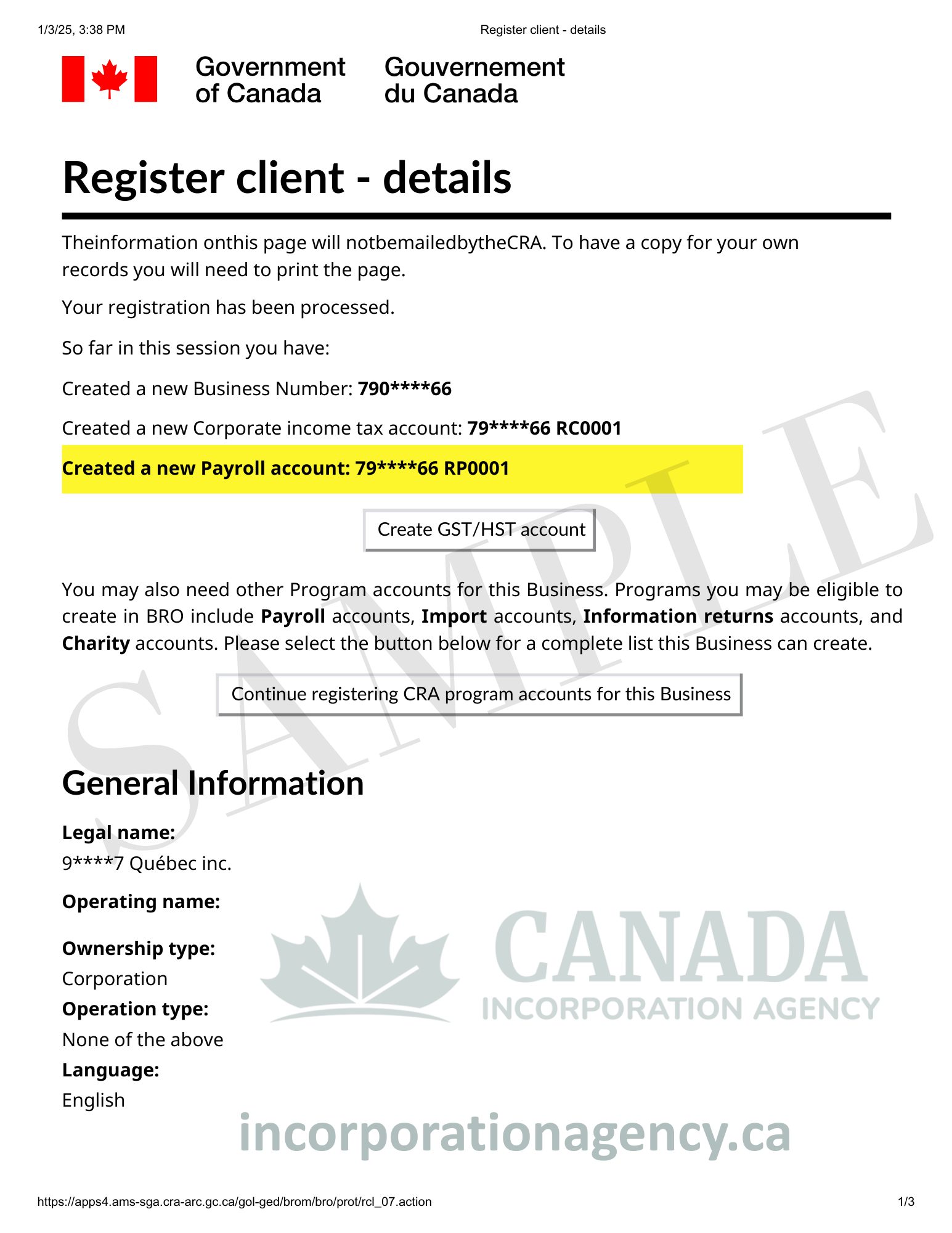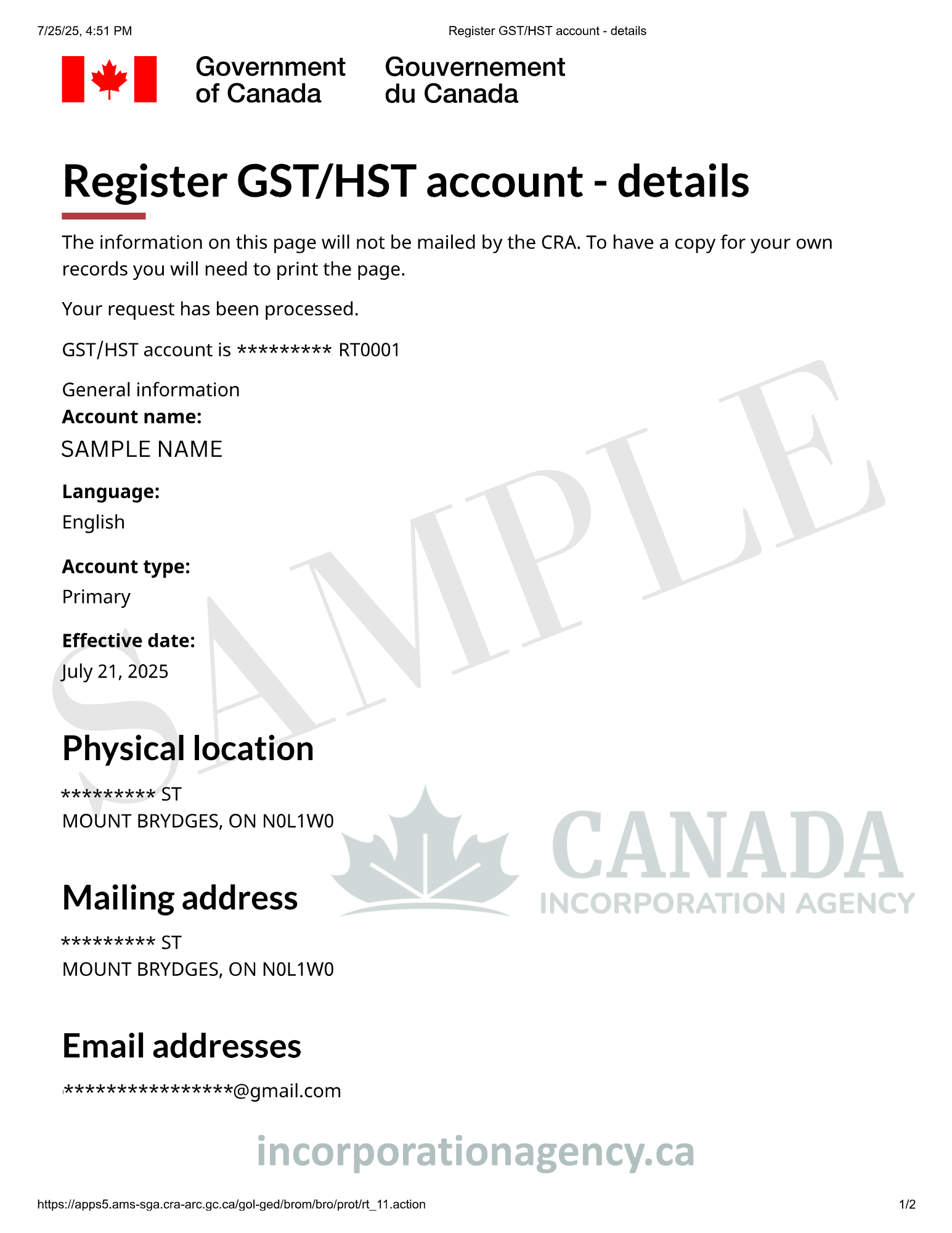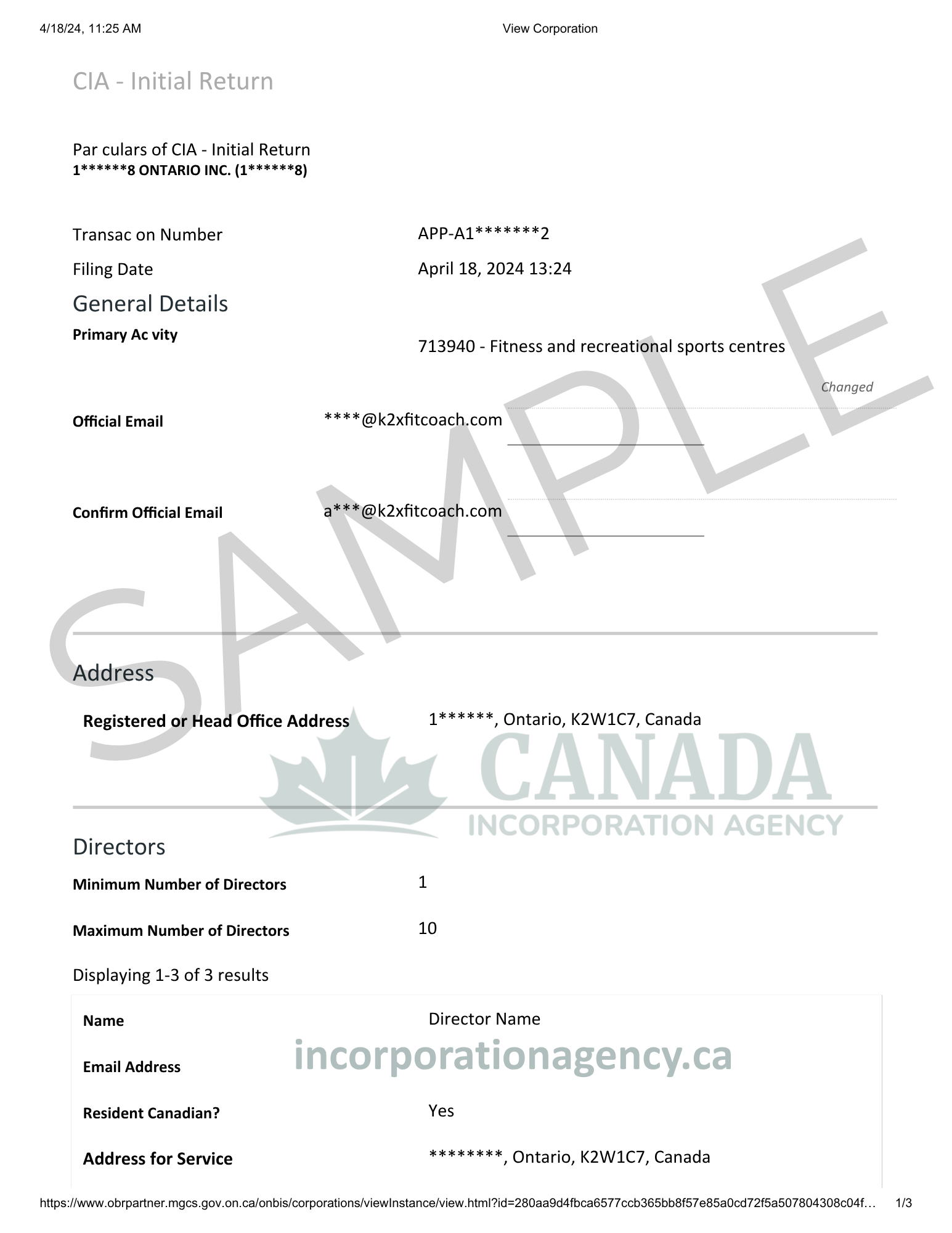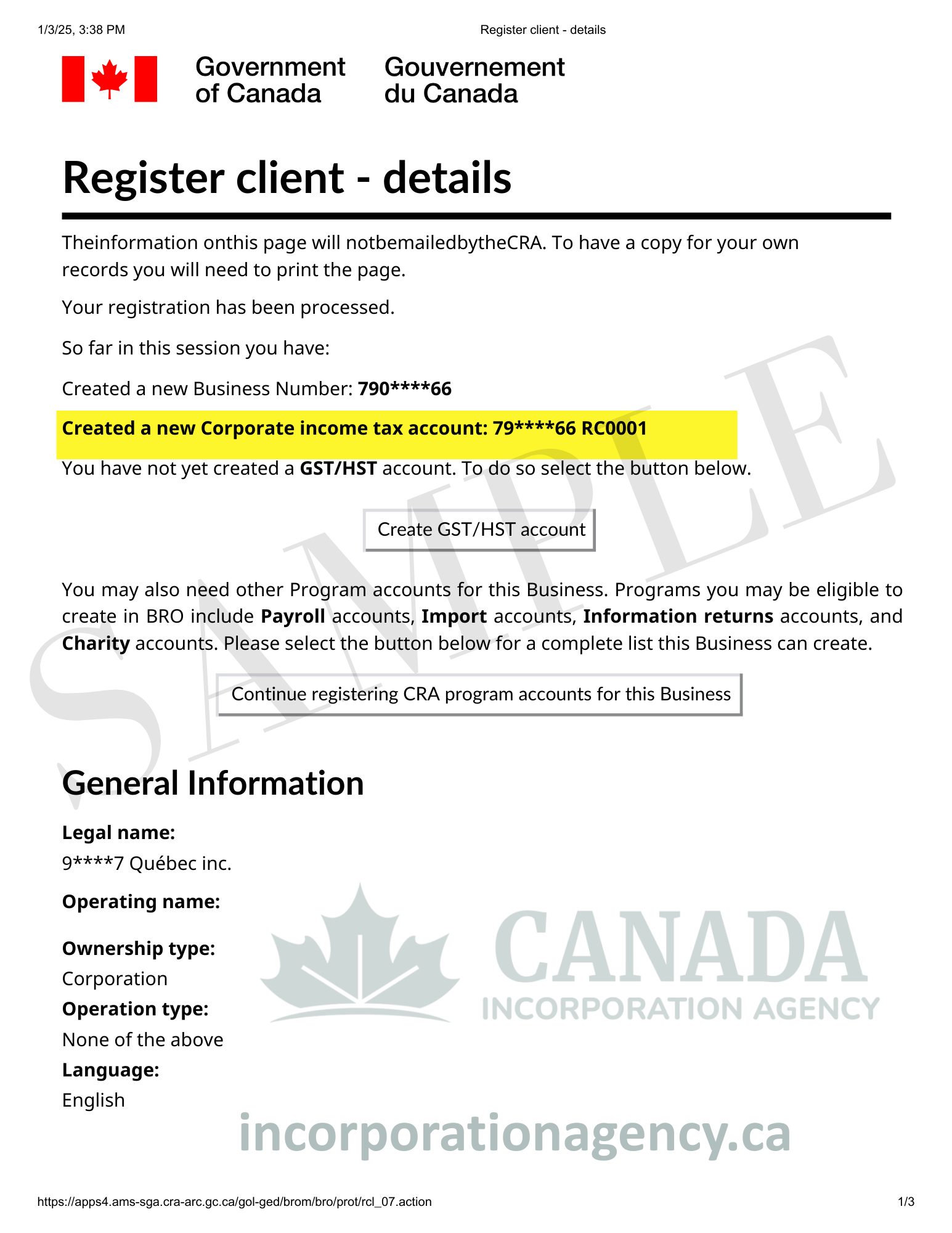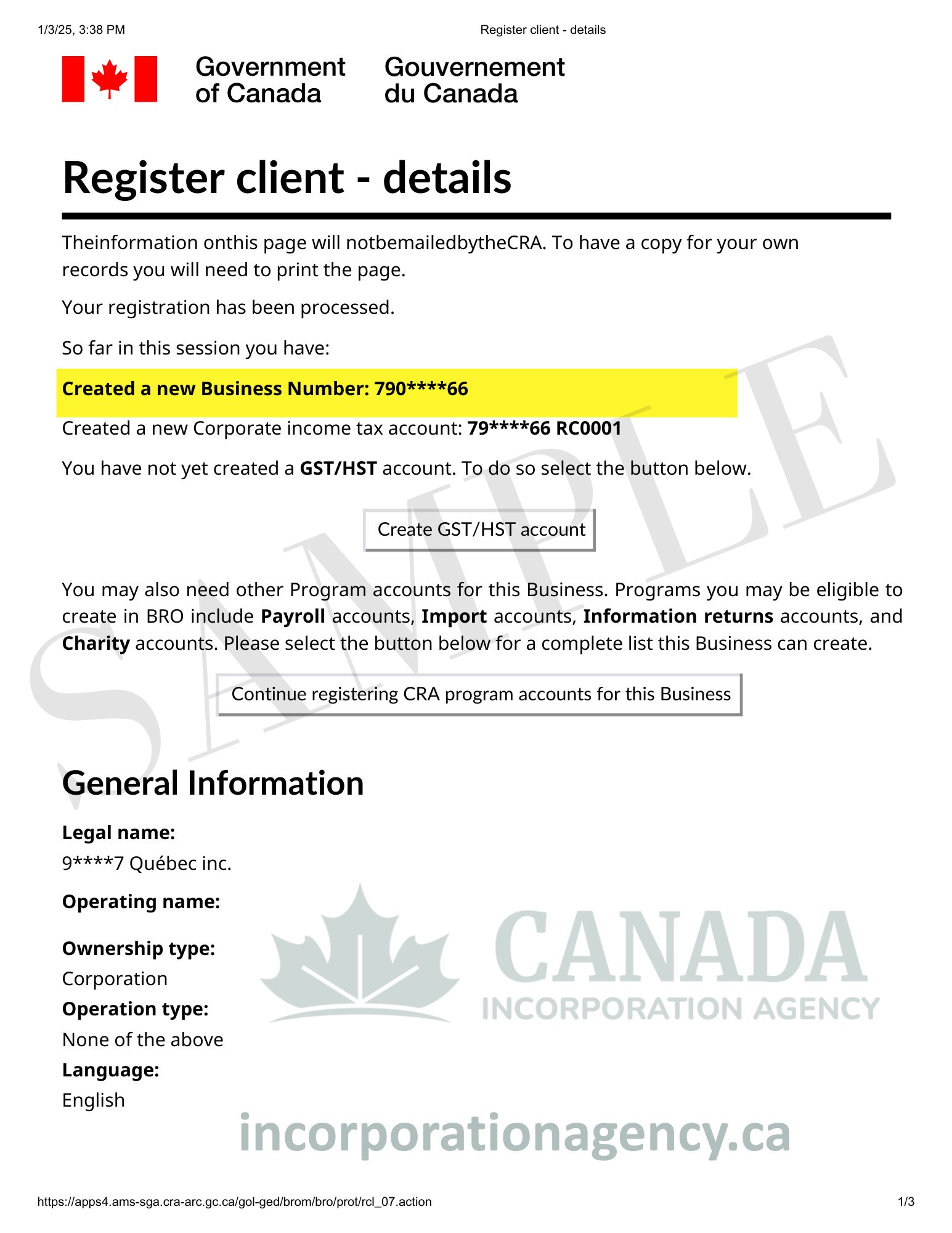Starting a business is exciting. There’s brainstorming, big dreams, maybe even a celebratory coffee (or wine — no judgment). But once the excitement settles, reality hits: paperwork. Specifically, something called the Certificate and Articles of Incorporation in Canada.
Sounds fancy? Maybe even intimidating? Don’t worry — we’re going to break it all down in plain English, with some laughs along the way, so you can feel confident when filing or reading your incorporation documents.
This guide will cover everything from what the Articles of Incorporation are, to how to draft them, how to get a copy, and even some common mistakes to avoid. Whether you’re incorporating in Ontario, Alberta, or federally, this article is your one-stop resource.
What Are the Articles of Incorporation in Canada?
Let us begin with the fundamentals.
The Articles of Incorporation in Canada are basically the birth certificate and user’s manual of your company combined. Consider them to be the constitutional legal roadmap of your corporation. They specify:
- Your corporation’s legal name.
- Its structure (amount of directors, share classes, etc.)
- The guidelines of how it runs.
Without them, your corporation legally doesn’t exist. It’s like trying to bake a cake without flour — you’ll just end up with a sad bowl of sugar.
Certificate of Incorporation vs. Articles of Incorporation
That’s where individuals get confused. They are not the same:
Certificate of Incorporation: Provided by the government after your business is officially registered. It’s your certificate of existence as a legal corporation.
Articles of Incorporation: The actual document that outlines your corporation’s structure and rules.
Consider this: the Certificate is the diploma that you staple to the wall. The Articles are the fine syllabus you had to live through to get that diploma.
Why Do You Need Articles of Incorporation?
You may ask: “Okay, but why should I care about the technical details in these documents?”
Good question. Your articles of incorporation are important because they:
Define your company structure: They establish the number of shares that can be issued, the class of shares, and who can own them. This influences anything ranging from fundraising to stock disputes.
Set the Rules: They decide whether your company has restrictions on doing anything, how the transfer of shares can be done, and how your board is structured.
Have Legal Protection: Well-written articles will keep you with your corporate veil—the legal distinction between you and your company that prevents your assets from being taken.
Affect Your Flexibility: Restrictive articles can make adapting more difficult as your business expands. Articles that have been well written give you room to maneuver.
Are Necessary to Start Banking and Contracts: Investors, banks, and partners will require your certificate and articles of incorporation before dealing with you.
Impact Future Changes: Some changes to your articles require shareholder approval and government filings, which costs time and money. Getting them right initially saves headaches later.
Key Components of Articles of Incorporation
Let’s break down what actually goes into articles of incorporation in Canada.
- Company Name
Your corporation’s legal name should be distinctive and within the naming rules. Here’s what you can select:
- A unique name (such as “Maple Innovations Inc.”)
- A numbered corporation (such as “1234567 Ontario Inc.”)
It should have a legal suffix such as “Incorporated,” “Corporation,” “Limited,” or Inc., Corp., Ltd.
- Registered Office Address
This is your corporation’s registered legal address. It will be in the jurisdiction that you’re registering (so if you’re registering in Ontario, your registered office will be in Ontario). This is where notices of the government and of the courts will go.
Note: This need not be where you actually carry out business—it may be your attorney’s or account’s office.
- Share Structure
This is arguably the most important part of your articles. You need to specify:
Classes of Shares: Most new small businesses will have only one class of “common shares,” but you can have many classes (such as common and preferred shares) with varying rights.
Number of Shares: You specify the number of shares that your corporation is qualified to issue. Most companies select “unlimited” to keep their options open.
Rights and Restrictions: By each class of shares, you define voting rights, rights to dividends, and rights of dissolution of the company.
- Transfer Restrictions
Most private companies have restrictions on who can be a shareholder. Common restrictions:
- Shares should be given to present shareholders before being sold to third parties (right of first refusal)
- Board approval is necessary while transferring shares
- The company cannot have any associated enterprises.
These restrictions help you maintain control over who owns part of your business.
- Number of Directors
You must specify either:
- A fixed number of directors (e.g., “three directors”), or
- A minimum and/or maximum amount (e.g., “a minimum of one and/or maximum of five directors”)
A minimum of one director is needed by most provinces. Federal jurisdiction requires a minimum of 25% of the directors to be Canadian citizens.
- Business Restrictions
You can include restrictions on what business activities your corporation can engage in, though most modern corporations leave this unrestricted to maintain maximum flexibility.
- Other Provisions
You can add other articles that regulate how your corporation will run, including:
- Pre-emptive rights (existing shareholders get first dibs on new share issues)
- Cumulative voting rights
- Special rights for minority shareholders
- Any other rules that suit your business needs
How to Get a Copy of Certificate and Articles of Incorporation
Lost your documents? Don’t panic. It happens to the best of us. Coffee spills, inbox black holes, or maybe your cat decided it looked like a great scratching post.
Here’s how to get a copy of the Certificate and Articles:
- Ontario: Request online through the Ontario Business Registry or Canada Incorporation Agency.
- Alberta: Contact an authorized service provider.
- Federal corporations: Use the Corporations Canada website.
Most copies come as official PDFs you can download, but certified paper copies can also be ordered (for when you need the real-deal stamp).
Myth vs. Fact: Articles of Incorporation
Myth | Fact |
|---|---|
| Articles of Incorporation are optional. | Nope. They are legally required. |
| You only need them once, at startup. | They must be updated if your structure changes. |
| They’re super complicated legal jargon. | They’re surprisingly straightforward (and templates exist). |
| Certificate and Articles are the same. | Totally different documents, but both essential. |
Frequently Answered Questions
Do I need a lawyer to prepare the articles of incorporation?
Not really, you can simply use a third party filing agent’s help. Canada Incorporation Agency will draft your articles of incorporation professionally and fast.
How long does it take to receive a certificate of incorporation?
Online filing takes 1-5 business days. Filings by mail take between 2-4 weeks. Federal filings process faster compared to provincial.
Can I change my corporation’s name after incorporation?
Yes, by filing articles of amendment to the relevant government office. Shareholder approval will be required and a filing fee equivalent to the initial incorporation fee will be paid.
How do federal and province articles of incorporation differ?
Federal articles permit you to carry on business within the same name throughout Canada and are regulated by Canada Business Corporations Act. Provincial articles (such as articles of incorporation Ontario or articles of incorporation Alberta) are regulated by the province’s law and provide you with protection only within that province.
Are articles of incorporation necessary to open a business bank account?
Yes. A bank needs your certificate and articles of incorporation to confirm that your corporation exists and to know its structure before establishing a corporate account.
How do I get a copy of certificate and articles if I lose mine?
Contact the corporate registry where you are incorporated (federal or provincial) and request certified copies. Most registries offer online ordering for a fee of 99$ per document.
Final Thoughts
If you’ve made it this far, congrats! You now know more about the Certificate and Articles of Incorporation in Canada than most new entrepreneurs.
Here’s the bottom line:
- The Certificate proves your business exists.
- The Articles explain how it runs.
- Both are mandatory, and both are worth keeping safe.
So go forth and incorporate with confidence. And remember — paperwork may not be easy, but it’s what keeps your business legit.

